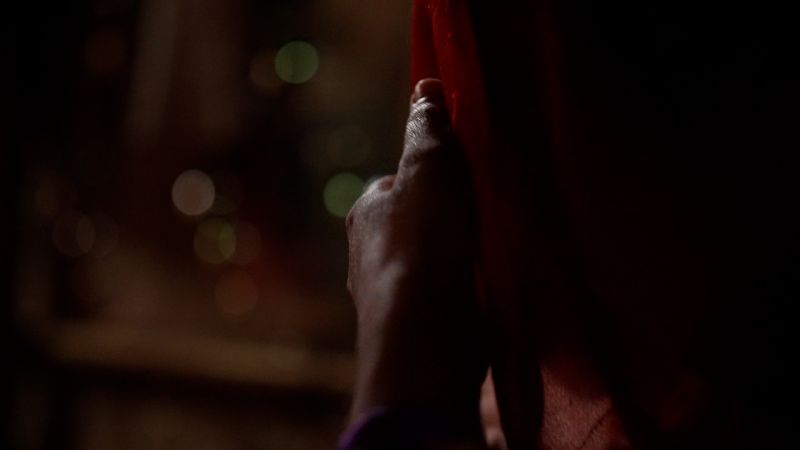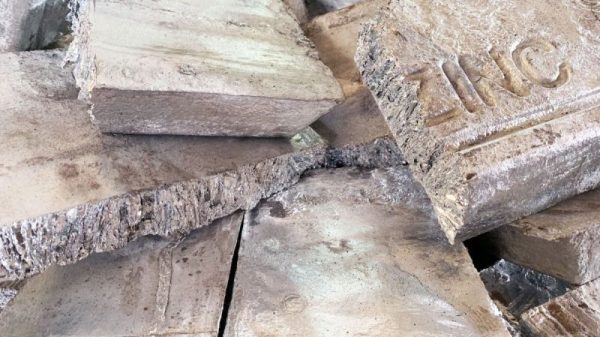Editor’s Note: This story contains graphic descriptions of violence.
As tears roll down her face and her body shivers with pain, Hamida cradles her 4-year-old daughter and baby boy on her lap, comforting them as they cry for their father.
The 22-year-old ethnic Rohingya is surviving on the kindness of fellow refugees in a camp near Cox’s Bazar, Bangladesh – and trying to process the horrors she endured in neighboring Myanmar, where a civil war is raging between the country’s military and rebel groups including the Arakan Army.
“After they entered my home, they hit me, beat me, and I was struggling to get free when they raped me,” Hamida says. “For at least one hour, they tied me up.”
Hamida – who asked to only use her first name for fear of reprisals – says seven Arakan Army soldiers gang-raped her during the attack in Myanmar’s western Rakhine state in late July.
“I screamed, so they closed my mouth with their hands,” she says. “They raped me. They beat me with their guns. They kicked me. Still, I can’t move (without) pain.”
During the attack, she says her husband heard her screams and ran into their hut to save her – but he was pinned down and forced to watch.
“They slaughtered my husband after they raped me,” she says. “Four Arakan Army soldiers were holding him down tightly, and one slaughtered him with a big sharp knife.”
Known as the world’s biggest refugee camp, more than a million Rohingya Muslims are sheltering in makeshift tents near the town of Cox’s Bazar – most of whom fled there in August 2017, after Myanmar’s military killed an estimated 10,000 people in what United Nations experts labeled a genocide.
Now, new arrivals like Hamida are bringing reports of mass murder, bombing attacks on civilians, and burning villages – which bear hallmarks of the 2017 attacks, seven years later. But this time, the ethnic Rakhine rebel group Arakan Army is being blamed for the brutality.
‘It felt like the end of the world’
Witnesses say the deadliest day for attacks was August 5, when an estimated 200 people were killed as drones rained down bombs on those fleeing fighting in the town of Maungdaw.
Videos circulated widely online show piles of bodies – mostly women and children surrounded by their belongings – scattered around a mangrove forest along the shoreline, slaughtered as they tried to board boats to Bangladesh.
Abdul Bashar, a 48-year-old father who survived the drone attacks, says they took place around 6 p.m. that day.
“When we reached the border fence, we saw a large bomb fall on a group of people, killing many of them,” he says. “They were attacking with drones, gunfire, and heavy weapons. It felt like the end of the world.”
Bashar saw his 17-year-old son die, along with his sister, who was killed as she breastfed her 8-month-old daughter.
“I couldn’t look back because bombs were falling heavily,” he said. “I had two of my children with me, and I was bleeding.”
Bashar is now sheltering in a Cox’s Bazar camp with his 10-year-old nephew – whose parents and five siblings died in the attack. The boy survived despite severe shrapnel wounds to his arm.
“I feel that death would be better than living through this,” Bashar said.
A new report from human rights group Fortify Rights urges the International Criminal Court (ICC) to “investigate a massacre of Rohingya civilians perpetrated by the Arakan Army (AA).” A separate report from Human Rights Watch says the attacks “raise the specter of ethnic cleansing.”
He said AA fighters had “never targeted or killed innocent civilians,” claiming the August 5 drone attacks were carried out by the military.
In response to a separate question about Hamida’s testimony of gang rape, the AA’s Khaing Thu Ka said the group would “certainly investigate” her case.
The Rohingya people – a largely Muslim ethnic group with a distinct language and culture – have long been persecuted and denied citizenship in majority-Buddhist Myanmar, with official propaganda describing them as “Bengalis” or “illegal immigrants.” They are also denied official status in Bangladesh, making them known as “the world’s most unwanted people.”
Bangladesh’s new interim chief Muhammad Yunus has promised to continue supporting the Rohingya in his country, but has appealed for the fighting in Myanmar to end so they can return to their homeland with “safety, dignity and full rights.”
Overnight exodus
Tight controls remain in place along the 18-mile (30-kilometer) shoreline of the Naf River snaking between Myanmar and its neighbor – with Bangladeshi border guards under orders to try to keep the fleeing Rohingya out.
Refugees are now using the cover of darkness to try to evade capture, often setting out from Myanmar around 10 p.m. to make the 1.8-mile (3-kilometer) journey across the water.
All the phones on her boat had been switched off for security during the journey, so he went for hours without hearing an update.
“I am really very concerned,” said Mohammed, who didn’t want to use his real name. “This is my big sister.”
He’s worried that his sister, who can’t swim, could drown during the crossing. Many refugee boats have sunk in recent weeks, the bodies of their desperate passengers eventually washing ashore and buried in shallow graves on the beach.
Compounding Mohammed’s fears are the pre-dawn sounds of explosions and rifle fire just across the river – a reminder of why his sister and other Rohingya are fleeing.
On the Bangladesh side, it has become a game of cat and mouse for the coast guard to spot boats emerging from the inky waters before they make it onto land. The full moon casts a silver glow over the river, putting incoming boats in extra danger of being spotted.
Mohammed’s sister never appears that night, and by dawn, his panic starts to rise.
“The world is now dark for me,” he said. “I lost everything … in my life.”
Hours later, he hears that his sister made it to land further up the coast – but was kidnapped by brokers demanding payment for her release. Eventually she was able to reunite with Mohammed in the camps, but the family spent all of their money trying to get her to safety.
‘AA wants to wipe out Rohingyas’
Calls are now growing for Bangladesh to allow humanitarian access for the incoming refugees.
“UNHCR is calling on Bangladesh to provide access to safety for refugees escaping the violence in Northern Rakhine State, most recently in Maungdaw township,” said Shari Nijman, spokesperson for UNHCR Bangladesh. “Among new arrivals are many women and children, including some with critical injuries from gunshots and shelling.”
Jamila Begum, 45, made it across in a boat with four of her grandchildren, including a 6-month-old baby.
She said her family tried to run from their homes on August 5 during a pause in the fighting, but then bombs “fell on the roof of the house,” killing Begum’s daughter as she held her youngest child – along with her husband and 7-year-old daughter.
Begum fled with her surviving grandchildren and they hid for five days before boarding a boat to Bangladesh. But her eldest grandchild didn’t make it – he died from his injuries before they were able to find a boat, and she was forced to leave him on the beach.
After they left, she heard the AA had set fire to her village.
Now, Begum is safe in the camps but fears for the future of her grandchildren, as their only guardian.
“Sadness will not go from our lives,” she says.

























